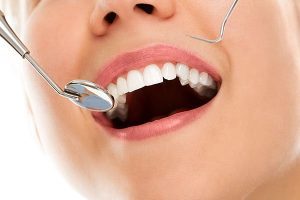Oral Surgery
 Oral surgery deals with the diagnosis and surgical therapy of the diseases and injuries of the human mouth, jaw, and associated structures.
Oral surgery deals with the diagnosis and surgical therapy of the diseases and injuries of the human mouth, jaw, and associated structures.
Conditions That May Require Oral Surgery
Impacted Wisdom Teeth
Wisdom teeth become most familiar to people when they reach their late teens or early twenties.
Sometimes, these teeth erupt from the gum line, and the jaw is large enough for them, but this is not true for all cases.
Reasons for Extracting Wisdom Teeth
A wisdom tooth is removed because of the following reasons:
- Impacted growth
- Growth at the wrong angle
- Gum infection
- Tooth trapped within the jawbone
Tooth Loss
Dental implants are medical-grade titanium posts that bond with the jawbone or skull to support and hold up dental prosthesis such as crowns, bridges, dentures, facial prostheses, or to act as an orthodontic anchor.
Qualified candidates for dental implants need to have a sufficient healthy bone level, must not be at risk with infection and must be willing to sustain good oral hygiene habits.
Jaw Problems
Unequal jaw growth. There are some cases the upper and lower jaws do not grow properly. This can cause problems with speaking, eating, swallowing, and breathing.
Severe jaw problems may require oral surgery to remove all or parts of the lower and upper jaw or both, to create more balanced, functional, and healthy jaws.
Improve the fit of dentures. Oral surgery may be performed to correct any irregularities of jaws before creating the dentures. This ensures a better fit; it can also help long term denture wearers.
Supporting bone often wear down over time, resulting in a denture that no longer fits properly.
Temporomandibular joint disorders. Temporomandibular joint disorders occur when there are problems with the facial and jaw muscles. This is the result of clenching your jaw or grinding your teeth over long periods. TMJ disorders can cause facial pain, headaches, dizziness, and neck and back pain.
Other Conditions Treated by Oral Surgery
- Facial injury repair
- Lesion removal and biopsy
- Cleft lip and cleft palate repair
- Facial infection
- Snoring or sleep apnoea
After Surgery Care
On the day of the surgery, fresh and soft food is recommended, such as applesauce, cottage cheese, or yogurt. Hot foods may disrupt clot formation in the extraction sites.
The following day, it’s best to avoid crunchy foods such as popcorn, nuts, and potato chips since they break into little pieces and can get packed down into the extraction site.
If you had dental implants placed, avoid chewing hard foods with the implants for six weeks or the healing of the implant will be compromised.
Oral Surgery in Cheltenham
Visit your Cheltenham dentist today!
For more information about our oral surgery procedures in Cheltenham, call us on (03) 9553 1249. Visit us on the web, or use our convenient online booking page.
We are located at 36 Chesterville Road in Cheltenham.
